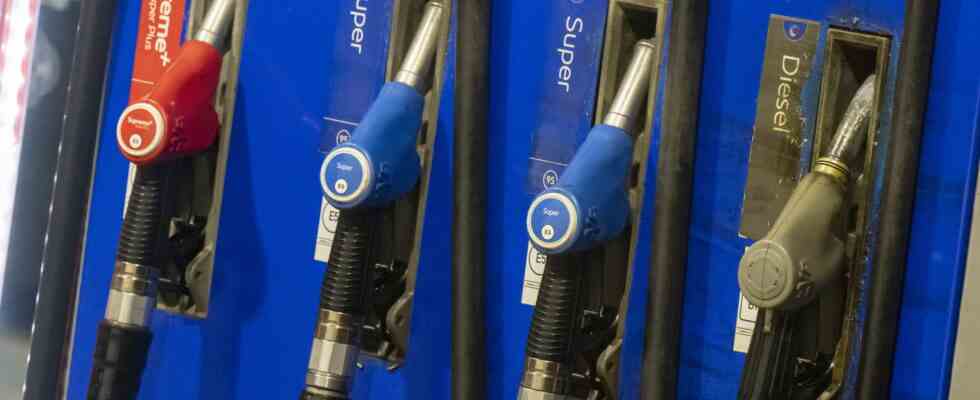Status: 03/18/2022 2:49 p.m
The war against Ukraine has pushed up fuel prices. According to experts, a shortage of crude oil can hardly explain the current level. Apparently, mineral oil companies want to secure their profits.
A third of the crude oil in Germany usually comes from Russia. In addition, almost 15 percent of the diesel tanked in Germany comes from Russian refineries. The war thus had a strong impact on diesel prices in Germany. But the fuel price contains other components. The ADAC has broken it down. “Taxes make up a large proportion of the current price of petrol and diesel. A fixed 65.4 cents energy tax, formerly mineral oil tax, is payable per liter of petrol. The energy tax for diesel is 47.0 cents per liter. Added to this is value added tax at 19 percent “, so ADAC spokeswoman Katrin van Randenborgh.
Dollar exchange rate as another factor
Another component: the cost price of the product, the price of the imported goods, the level of which depends on the current situation on the oil markets. The rest is called the contribution margin. “This includes, for example, the costs of transport, warehousing, administration, sales and further processing up to the pump as well as the CO2 tax and the profit of the mineral oil companies,” says van Randenborgh.
In addition to taxes, fuel prices are influenced by the market. Global commodity trading changes depending on the economy, the political situation or the time of year. Currency fluctuations against the dollar also have a significant impact: Oil is traded worldwide almost exclusively in the US currency. So if the dollar exchange rate rises in relation to the euro, fuel prices usually rise as well.
Finally, there is competition between service station operators. Consumers also have an influence here by opting for the cheapest provider.
Prices rise faster than they fall
The main price drivers in the current situation are currently the very strong fluctuations in oil prices. “Speculation certainly plays a major role at the moment, since the supply of oil is not scarce, on the contrary, reserves have even been thrown onto the market. The price of oil has recently fallen again, which actually means that fuel prices would have to decrease,” says Claudia Kemfert from the German Institute for Economic Research (DIW) in Berlin.
The fact that they are currently only doing so very slowly is due to a phenomenon known as “rockets and feathers”: Price-increasing factors are usually added disproportionately to the fuel price, but when oil prices fall, fuel prices do not fall to the same extent. After oil prices go up, gas prices go up like a rocket; but conversely, when oil prices fall, they fall like a feather. “This has to do with the fact that when oil prices rise, companies want to protect their profit margins and therefore react immediately. On the other hand, when prices fall, companies take their time,” says Michael Hüther, Director of the German Economic Institute.
Should “war profits” be taxed?
There are major political effects on oil prices. When there is great uncertainty, the result is often a rapid jump in prices, which then corrects itself again. “If you notice that there are certain perspectives again, then you will also see the correction on the sensitive raw material markets. At some point it will also reach the consumer again, but that is a longer way, that is not symmetrical,” says Hüther.
Since the profit margins are so high, DIW energy expert Kemfert assumes that the oil companies are currently benefiting most from the development: “Therefore, one should check whether such war profits are taxed, and a financial transaction tax can probably also help.” She doesn’t think much of a fuel price brake or a reduction in VAT. “This is not only expensive, but also no guarantee for automatically falling fuel prices, since the margins are often simply increased. Instead of increasing the commuter allowance, a mobility allowance that is not dependent on income would make sense, which would help people with low incomes in particular,” says Kemfert.

